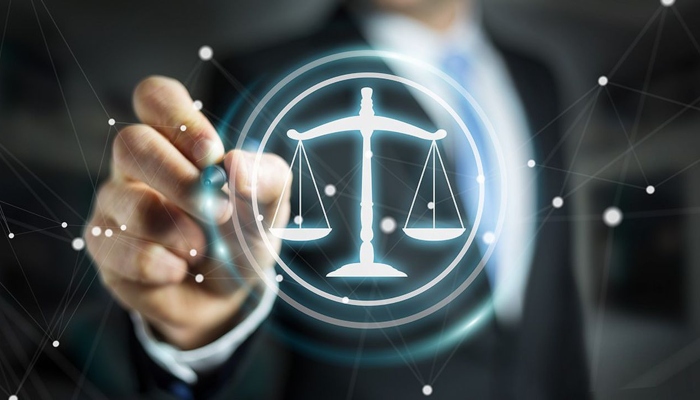Rise of legal AI
In elite global law firms such as Allen & Overy, AI is already functioning as a digital co-pilot
June 16, 2025

A quiet revolution is underway in courtrooms and law firms from New York to Nairobi. Generative Artificial Intelligence (AI), powered by large language models like GPT-4, is no longer a distant concept or Silicon Valley novelty.
It’s reshaping how legal systems operate: automating research, streamlining drafting and aiding legal decision-making in ways unimaginable just a few years ago.
In elite global law firms such as Allen & Overy and platforms like Case text’s CoCounsel (recently acquired by Thomson Reuters), AI is already functioning as a digital co-pilot — reviewing contracts, preparing depositions and generating memos in minutes.
In response, regulatory frameworks like the EU AI Act have introduced stringent guidelines, particularly for high-risk use cases such as judicial decisions. Courts worldwide are adopting cautious optimism: embracing AI’s efficiencies while guarding against bias, opacity and dehumanisation. Now, Pakistan has entered this arena.
In a landmark April 2025 decision, Supreme Court Justice Syed Mansoor Ali Shah issued an 18-page ruling that may define the trajectory of legal AI in the country. While adjudicating a seemingly routine rent dispute, the Supreme Court addressed a much deeper issue: how AI might help fulfil Article 10-A (right to a fair trial) and Article 37(d) (inexpensive and expeditious justice) of the constitution. The judgment called AI a “viable instrument for access to timely justice”, urging the National Judicial (Policymaking) Committee to establish clear guidelines. These must ensure AI remains “a facilitative tool”, never replacing judicial discretion or compromising the conscience of human judgment.
Justice Shah’s vision is calibrated. While recognising the promise of AI in clearing judicial backlogs and democratising access to legal knowledge, he emphasised non-negotiable boundaries. “Justice is a human endeavour”, he noted. Algorithms can assist, but only humans can weigh morality, emotion and fairness. The ruling warns against biases embedded in historical legal data and AI's “hallucination” tendency. Courts must adopt AI, but ethically and deliberately.
While the apex court deliberated principles, practitioners on the ground took action. In May 2025, Pakistan saw its first-ever Generative AI Masterclass for Lawyers, a historic, practice-oriented training co-organised by EnablifyAI and the Legal Aid Society. Held over two evenings, this masterclass was not another theoretical webinar. It was a hands-on leap into the future.
Participants, including advocates, in-house counsels and young legal minds, learned how to use AI for prompt engineering, redlining contracts, drafting case briefs, and summarising judgments. In real-time, they watched AI draft legal clauses, analyse case law and assist in building customised legal tools.
One such output was the ‘Danish Legal Assistant’, a no-code AI paralegal that can retrieve case laws with citations, draft FIRs and notices in both English and Urdu, structure arguments, and conduct legal research, all grounded in Pakistan’s jurisdiction and designed to avoid hallucinations.
As Muhammad Shahzar Ilahi, the masterclass instructor and EnablifyAI co-founder, noted, “Lawyers who use AI won’t be replaced. But lawyers who don’t use AI might be”. This statement reflected a broader truth: AI is not replacing professionals; it's amplifying them.
Pakistan’s legal system is overburdened, with over two million cases pending across courts. Trial courts face the heaviest backlogs. AI can help triage cases, automate repetitive orders, and even recommend precedents, dramatically reducing turnaround times. The Federal Judicial Academy has already piloted ‘Judge-GPT’, developed with ETH Zurich and deployed to over 1,500 judges. Early reviews suggest faster legal research and improved decision quality.
Legal services are prohibitively expensive for most citizens. AI could reduce drafting and review time for lawyers, enabling more affordable legal services, especially for underserved populations.
But the risks are real. If AI systems are trained on biased judgments, they may perpetuate historical discrimination. If left unchecked, hallucinations could mislead both judges and lawyers. There’s also the ‘black box’ dilemma: how can a party challenge a decision if the logic of the AI remains opaque?
The answer lies in ethical infrastructure. Courts must remain accountable. Human oversight must be absolute. Transparency in AI use is essential.
Pakistan must now transform this initial momentum into structured reform. Based on international best practices and domestic insights, several policy steps are critical.
Judicial AI guidelines: As called for by the Supreme Court, national institutions must urgently define where AI can assist (such as: research, drafting) and where it must never intervene (sentencing or verdicts).
AI literacy in legal education: Bar councils and universities must embed AI literacy into continuing legal education and LLB curricula. The 2025 Masterclass is just a start; we need a national rollout.
Localised legal AI models: Pakistan must build its own legal models trained on local statutes, languages, and judgments, not rely on foreign AI trained on American law. This ensures cultural and jurisdictional relevance.
Mandatory AI disclosure codes: Judges and lawyers should disclose where AI has contributed to research or drafting. This will preserve professional accountability.
National AI & Justice Oversight Forum: A multi-stakeholder watchdog — comprising judges, technologists, ethicists — must oversee AI’s legal integration and respond to misuse.
The challenge is not whether AI will enter Pakistan’s legal system. It already has. The challenge is to shape that entry with wisdom, caution and constitutional clarity. If we succeed, Pakistan can become a global model for AI-augmented justice, where tradition and technology co-exist to serve the public good.
As we stand at the cusp of this transformation, the legal fraternity must lead, because justice must always evolve but never be compromised.
The writer is an advocate of the high court
Disclaimer: The viewpoints expressed in this piece are the writer's own and don't necessarily reflect Geo.tv's editorial policy
Originally published in The News











